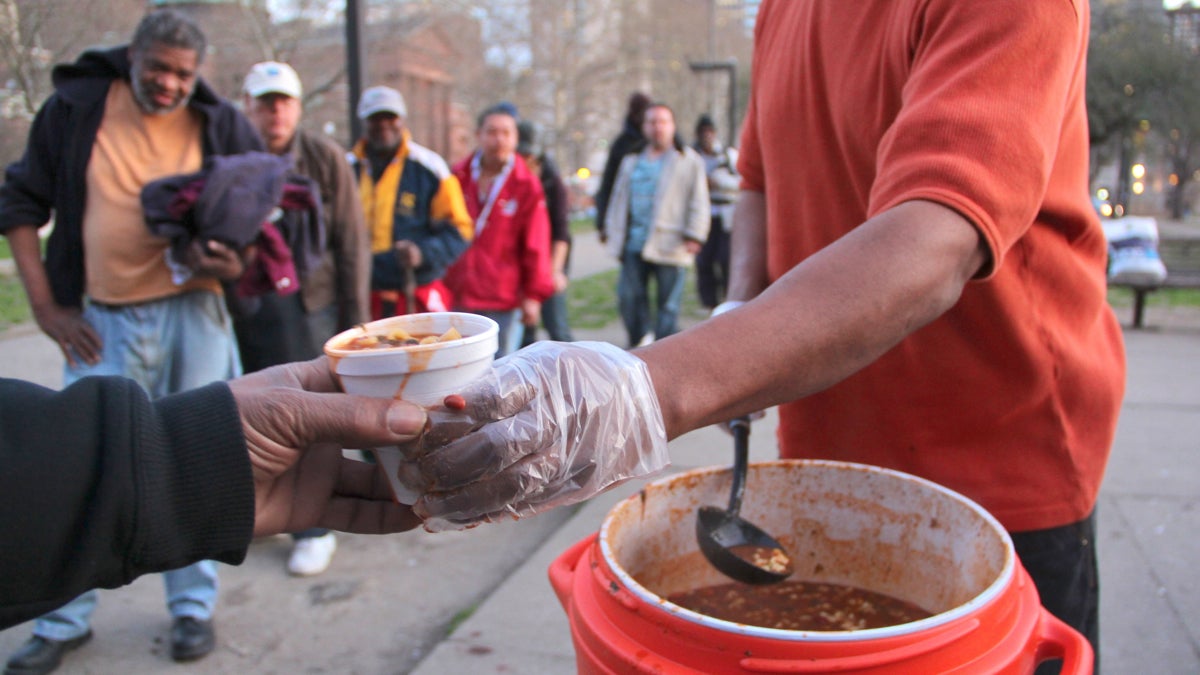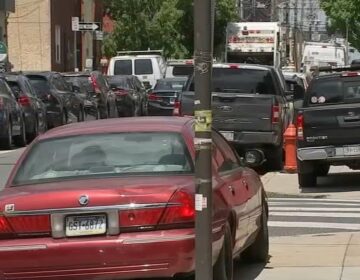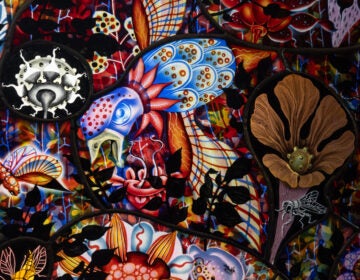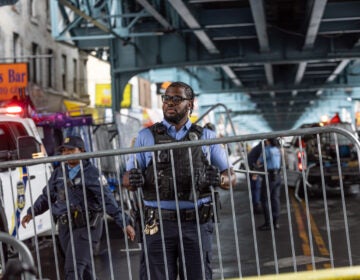Outdoor meal ban lifted in parks as city sets aside $1M from drink tax for indoor serving space

Homeless and hungry people line up for a meal near Logan Circle across from the Family Court building on Vine Street. (Emma Lee/WHYY file)
Philadelphia Mayor Jim Kenney has officially lifted a controversial ban on outdoor meals in city parks, which prompted a lawsuit from groups that serve the homeless.
Now, those groups may be getting a new indoor serving location — thanks to the city’s new tax on sweetened beverages.
Kenney spokeswoman Lauren Hitt confirmed the fiscal year 2017 budget recently passed by City Council includes $1 million for an indoor space to serve meals with the help of revenue from the new, 1.5 cents-per-ounce tax on sugary and diet drinks. During council negotiations on the tax, about $4.4 million in revenue was allocated to the city’s Department of Health and Human Services, which has been tasked with finding a space where groups can provide meals and other support services to those in need without forcing them to wait in long lines in bad weather.
Now the question is where.
City officials have been looking for an indoor location — even considering a large tent — since 2012 when former Mayor Michael Nutter sought to prohibit feeding the homeless on the Benjamin Franklin Parkway. The ban never took effect because advocates including Brian Jenkins sued and a federal judge issued an injunction.
Jenkins’ nonprofit, Chosen 300 Ministries, serves hundreds of hungry people on the Parkway on Saturday evenings in warm months and provides indoor meals in three locations year-round. He supports finding an indoor space, but said it will not eliminate the need for outdoor services.
“We should not be forcing organizations or the homeless or the hungry to say, ‘This is where you have to eat’ because you and I have the choice of eating wherever we want to,” Jenkins said. “So we want to make sure that choices remain.”
Jenkins and other advocates argue many homeless people are wary of coming inside and, thus, would miss out on meals and opportunities to connect with service providers who seek them out where they are.
“I’m not convinced an indoor facility is going to be an answer, but it might be one way to help,” said the Rev. Violet Little, who leads worship services on the Parkway as a pastor of The Welcome Church.
Little was also a plaintiff in the suit and said she was relieved when she heard the ban was officially over.
“I’ve been saying all along the mayor isn’t the enemy, the city isn’t the enemy. It’s hunger and homelessness,” she said. “With having that ban lifted, we can all work together on eliminating hunger and homelessness.”
WHYY is your source for fact-based, in-depth journalism and information. As a nonprofit organization, we rely on financial support from readers like you. Please give today.




